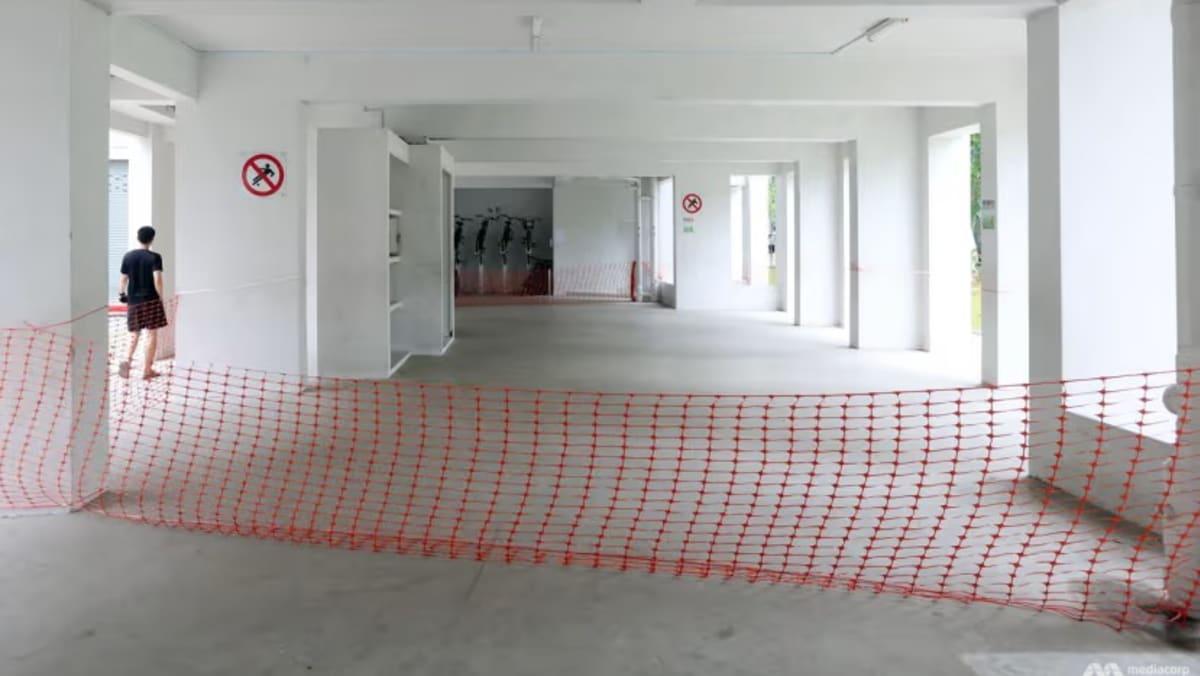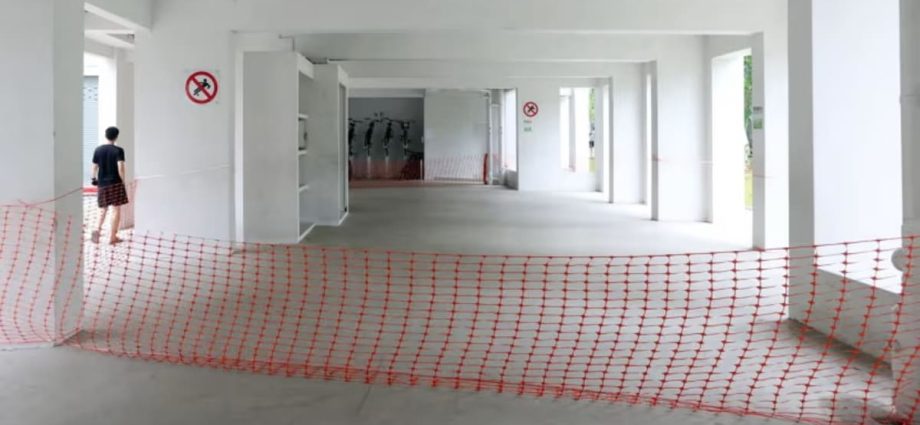
Citing examples of programmes such as electric vehicle charging points and the installation of solar panels on more than 8,000 HDB blocks, Dr Syed noted that it is possible to redesign the systems in residential estates.
In addition, there also needs to be continued policy encouragement that allows for spontaneous day-to-day activities, he said.
“This should be coupled with a considered approach towards usage of common spaces, and engendering trust and responsibility to the end-user and resident.”
The approach can include when and where certain activities are allowed, whether modifications need to be made for certain games to be void deck or common space-friendly, or certain “no-go” areas for specific activities.
“There is enough space in the common spaces of residential estates but it’s a matter of how we allow for its use, to together achieve the best outcomes for social cohesion,” said Dr Syed.
NEED TO ENSURE EFFICIENT USE OF SPACE
When it comes to using common spaces, there are, on occasion, conflicts and disamenities that have to be managed while balancing the interests of different groups, noted Assoc Prof Faishal.
He added that residents who wish to use the common spaces must apply to the town councils for permission and that arrangement “may not be ideal” for some people.
But given Singapore’s land constraints, there is a need to ensure fairness and efficient use of space in housing estates, he said.
“At times, despite the work done to bring parties together to resolve issues amicably, there are sometimes parties who may be unwilling to compromise,” Assoc Prof Faishal said.
“In such cases, town councils and relevant agencies may have no choice but to intervene directly, to ensure a conducive living environment for all.”
Assoc Prof Faishal also noted that the interventions are “not taken lightly”, as town councils and relevant agencies would have already expended significant effort to communicate with affected parties and develop win-win solutions.
Cultivating mutual respect and good neighbourliness is now “more important than ever”, as more people spend more time at home with the rise of remote work post-pandemic, he said.
“Common spaces are created to serve individual and community needs.
“We will continue to design, build, and maintain conducive common spaces, and work with the community to provide meaningful programming for the community that enables social cohesion and integration.”

